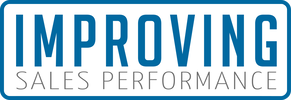 Things are changing fast in the world of sales. One of the most significant changes brought about by the pandemic is the transition from in-person visits to virtual client sales meetings. Whether you handle your sales calls by phone or video conference, connecting with your customer in the same way that you did with in-person meetings is vital. It is possible to build that same sense of excitement and personalized care in a virtual client sales meeting. Using new methods and simple techniques, you can create the same productive atmosphere. In fact, it's often the simple things that make the biggest difference. Try these practical tips to maintain a personal connection during virtual client sales meetings. 1. Prepare Yourself You wouldn't attend an in-person sales meeting without reviewing the customer's account and customizing your product/service offerings just for them. Maintain the same level of preparation for virtual client sales meetings. That includes reviewing personal notes. What do you know about their family, business history or any other general personal interest topics? Preparation also includes your tech tools. Don't assume your client knows how to use these tools. Not everyone has experience with Zoom or other forms of software. You would not want to make your customer feel inadequate. Give them the option of phone or video conference. Here's a list of top tech challenges I've noticed when scheduling virtual meetings. Review these, and be proactive about giving your clients a heads-up about potential challenges. The bottom line is, take the same amount of care in preparing for a virtual meeting as you would an in-person one. 2. Prepare Your Team If you're a sales manager, it's up to you to set your team up for success. Ensure they have the right tools to engage with clients online or over the phone. Do your reps have effective apps, laptops, tablets, Bluetooth devices, and most importantly, a solid internet connection? Do they have a tech resource if they need support for any of these tools? Don't forget the training! Some of your team members might not have used a video conferencing app before. Show them how powerful these tools can be. Provide training regarding both the technical aspects and basic etiquette. Also, remember that tools are not always tangible things. Tools also include support, such as role-playing sessions with managers or other team members, or brainstorming meetings to discuss specific techniques for unique clients. 3. Limit Distractions Yes, you have seen the viral videos of the cat interrupting an online meeting or someone's kid running through a screenshot. They make for funny YouTube clips, but you don't want those types of distractions when you're trying to duplicate the professional feel of an in-person meeting. Before your virtual client sales meeting begins, devise a way to block your meeting area from pets and ensure your kids understand the importance of not interrupting your meeting. It's essential that you focus on your meeting and minimize any possible distractions ahead of time. Turn off your mobile devices and other digital notifications to ensure your client feels like they have your undivided attention. 4. Break the Ice In the past, there was always a time at the beginning of the meeting when you broke the ice — a few minutes of casual conversation to get to know each other better and establish trust. Don't bypass this step just because the sales meeting is virtual. When you learn more about your customer's personal life, you can determine how it's affecting their business one. Ask about their family. Where are they from? How did they get into this business? Balance nosey with showing personal interest. 5. Be Aware of Your Background When you're having a virtual client sales meeting from your home, you may be showing your audience more than you want to. Before any online meetings, determine how much of your home and space the client can see. Clean and organize the space to give it a professional look. You don't want your client distracted by a stack of dirty dishes or a trophy from third grade. Consider choosing a room with a plain wall and placing your computer in front of it. Access More Resources Engaging your clients during virtual meetings is just one challenge to our new work dynamic. Keeping your sales team engaged while they work remotely is another hurdle. I just addressed that topic in this recent blog. Gain more insights on how to improve sales performance for your SMB, sign up for our newsletter. Contact us directly, or explore our website for other valuable resources and webinars.  In 2020, the Covid-19 pandemic played a key role in workers leaving the office and working from home. According to Forbes, 74 percent of employers believe that working remotely is the future. Even more shocking, 97 percent of employees have no desire to return to the office full-time. However, working remotely can be a challenge for sales teams, groups designed to thrive on each other's momentum. "Iron sharpens iron" is a proverb that definitely applies to sales reps. How can sales managers ensure their team will thrive in this new work environment? It's essential that you set your team up for success. Here are five ways to keep them connected, productive, and competitive while working remotely. 1. Nurture Your Team's Competitive Nature It is harder to foster a sense of competition in your sales team when each member is at home alone. However, salespeople are competitive by nature and need that dose of healthy competition to stay motivated. Get creative and find new ways to maintain momentum and recognize each person's successes. Single-out top performers in a team email, group chat, or during a weekly video conference. Consider celebrating each sale. This type of nurturing will make each of your team members strive harder to receive their own recognition. Read more about why ringing the figurative bell is critical to motivating your team and tips on how to do it effectively in this recent blog. 2. Provide the Right Tools for Working Remotely It's up to you to set your team up for success, and that means the right tools to get the job done. From laptops and tablets to apps and security programs, your team needs access to tools to continue selling from home. Not all the tools you offer your employees are tangible items, though. "Tools" also include access to coaching, managerial support, brainstorming sessions with other reps, and interaction through video chat. Create an open-door policy. Ensure your team feels comfortable coming to you when they need something to be more effective at their jobs, whether it's a tangible item or a listening ear. 3. Continue Training and Learning New Skills Training is a big motivator to go out and try new things in your sales routine. When your team works remotely, it's easier to let training slip off the schedule. It's essential that you continue training your staff and introducing new methods of making sales. Schedule training on a weekly or monthly basis during an online meeting. If you've had a member of your team experience success with a new technique, consider asking them to lead a training class on it. This builds goodwill and helps your team learn new selling methods. Many well-known sales training courses have shifted to a virtual environment. Offering formal training demonstrates an investment in your team. Identify training that your team would benefit the most from. 4. Define Your Expectations and Goals When you're in an office setting, it's easy to create a visual system that shows the team's goals and their current progress. Keep this trend going in the virtual environment. Define goals and how the team performed during the previous period at sales meetings. Many managers prefer to schedule a quick meeting early each week to build momentum and encourage the team to get tasks accomplished and sales closed. 5. Create a Water Cooler When you have a sales team that works in an office together, they have time to bond and learn to trust each other. They do this through basic socialization. The team discusses sports, family, hobbies, and other topics. In the past, you see this kind of talk going on around the water cooler, in the break room, or just in the hallway. Create a space for your team of remote workers to have this type of social interaction. There are a variety of apps that you can use to accomplish this. Slack, one of the most popular platforms, reports 12 million daily active users and 156,000 subscriber organizations. You could also hold a team lunch once a month. If in-person is not possible, meet online and share a meal. Help Your Team Flourish Keeping your remote sales team engaged is essential to its success. With a little planning and encouragement, your team will flourish. If you'd like more insights on how to improve sales performance for your SMB, sign up for our newsletter. Contact us directly, or explore our website for other valuable resources and webinars.  There's a quote from one writer that goes like this: "Don't chase success. Decide to make a difference and success will find you." Even though that concept could be applied to many aspects of life, let's look at it from the viewpoint of sales success in your organization. It's true that everyone in the sales industry wants that "big win," that easy fix to their performance issues that makes everything fall neatly into place. There's nothing wrong with that feeling. It's only natural. Here's the thing, though. Chasing that big win is usually counterproductive. In real life, it almost always takes a series of small, deliberate actions to get to a place where your business is humming along. It takes cooperation and collaboration. It takes hard work and perseverance. It takes intentionality and planning. Here's another saying (or part of a saying) that makes the point well: Your actions become your habits. Your habits become your values. Your values become your destiny. What Sales Success Stories Have in Common The point is, business growth is the result of small, intentional actions and good habits. These form the foundation of your brand's values and reputation. And ultimately, they decide your organization's destiny. Sales success stories may be flashy, or dramatic, or even heartwarming. But if you dig a little deeper, you'll almost always find that all success stories have a few things in common: namely, 3 solid frameworks that enable a sales organization to perform at a high level. Let's talk about each one of these frameworks, and why they are so crucial to improved sales performance. Framework #1: The Revenue Equation The Revenue Equation framework is actually a combination of three critical factors that form the basis of your entire sales process. These three factors are:
When each of these factors are streamlined and optimized, the result will be revenue stabilization and growth. The question is, what do these elements involve, and how do they work together? Sales Foundations (Who Are You?) Your sales foundations are the values and characteristics that make your brand unique. Sales foundations include your company's reputation, your pricing strategy, and your unique selling proposition (USP). Think of Apple, Inc. as an example. They have a reputation as a leader in technological innovation. Their price points reflect their position as a premier brand, and one of their USPs is their commitment to personal privacy and security. As the name implies, your sales foundations form the basis of everything else you do within the sales process. That's why you absolutely must understand who you are as a company, and then play to those strengths. Sales Design (Who Do You Sell To?) Once your sales foundations have been firmly established, you need to understand who your target customers are. After all, you don't want to be "punching air" by targeting consumers that aren't likely to purchase from your business. This is where buyer personas come into the picture. Your marketing team (preferably with input from sales) needs to come up with a profile of your ideal customer — or even multiple profiles, depending on how specific your targeting is. With that buyer persona in hand, your sales reps will be in a better position to understand the thoughts, concerns, and desires of their leads, nurture them effectively, and eventually convert them into paying customers. Sales Infrastructure (How Will You Sell It?) Once you have a firm grasp on who you are, and who your ideal customer is, it's time to build your sales infrastructure. In other words, the processes that can bridge the gap between you and your consumers. Your infrastructure includes the systems and software programs you use to manage customer relationships, your clearly defined sales funnel, as well as your KPIs, metrics and quotas. When these three elements — sales foundations, sales design, and sales infrastructure — are all working properly, and are clearly aligned with one another, then your first framework (The Revenue Equation) is firmly in place. Framework #2: The Individual Performance Planner Your Revenue Equation is in place. Everyone on your team has collaborated to make it a reality. Now, you have to start shifting your focus from the big picture to the details. These details are comprehensive, from the Revenue Equation to the individual performance of your sales reps. This is where collaboration and open communication become even more critical. Within this framework, your first order of business is to discuss with each sales rep what his or her strengths and growth opportunities are. What short-term and long-term goals will the rep set inside (and possibly outside) of work? The outcome of these discussions will be condensed and solidified into their own Individual Performance Planner. Intentionality is key in this framework. You have to demonstrate how serious you are when it comes to supporting your team members, and helping them achieve their goals. At the same time, your reps have to buy into this process, and commit to being the best salespeople they can be. This give and take is the only way to achieve maximum value from the important (but still theoretical) Revenue Equation. Framework #3: The Revenue Planner This final framework is where you'll see the fruits of your labor. You have your Revenue Equation in place, and your team members onboard. Now you have the insights and the freedom to identify key growth opportunities within the sales process. Next, you'll develop a plan of action for each one. Over the first three months of the process, this will involve taking various actions. Consider adjusting discounts to featured products, doubling down on relationships with established customers, or refining your price points. Really, the sky's the limit. After achieving some quick wins, you'll want to stabilize your revenue in the following three months. Aim for continuous revenue growth in the months (and years) to follow. While the Revenue Planning stage is unique to each business, the framework it provides is useful across the board. Create Your Own Success Story Look deeply at sales success stories. Odds are you'll discern these three frameworks at work, in one way or another. Build your sales process around these frameworks. Then, your company will also enjoy quick wins and sustainable growth. If you'd like more insights on how to improve sales performance for your SMB, sign up for our newsletter. Contact us directly, or explore our website for other valuable resources and webinars. |
Meet Me
Archives
April 2024
Categories
All
|
|
We are headquartered in Colorado with domestic and international teammates and clients. Please use the contact form on this page to inquire about any of our books, podcasts appearances, speaking engagements and workshops, any of our offerings, or simply to connect.
|
© Improving Sales Performance. All Rights Reserved.


 RSS Feed
RSS Feed
